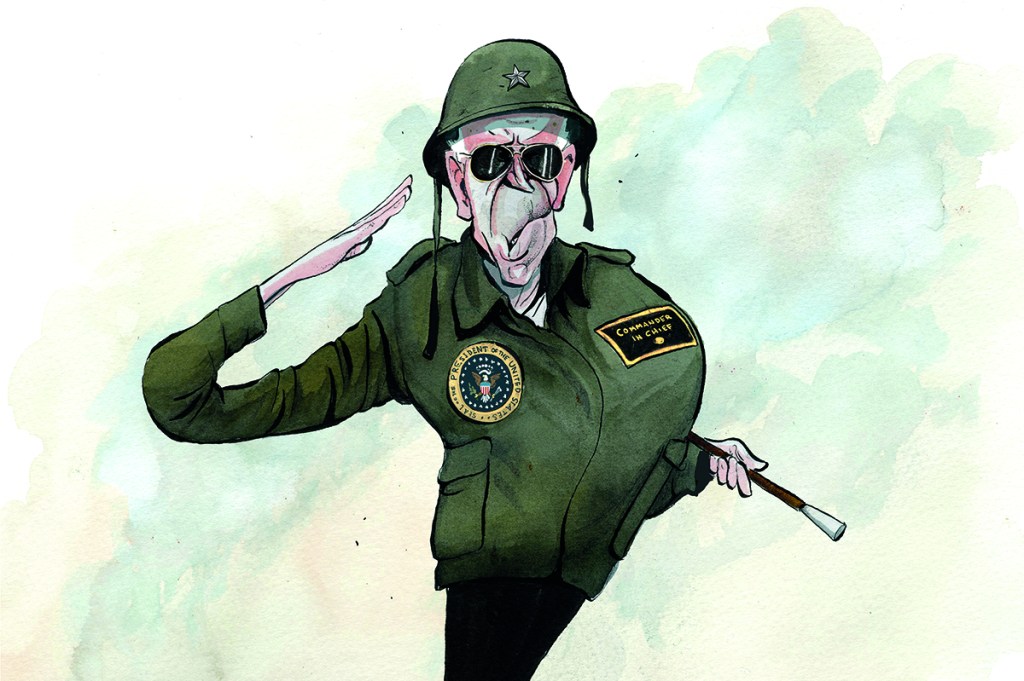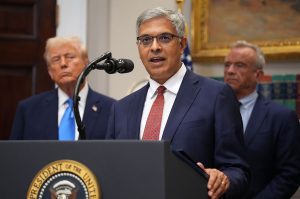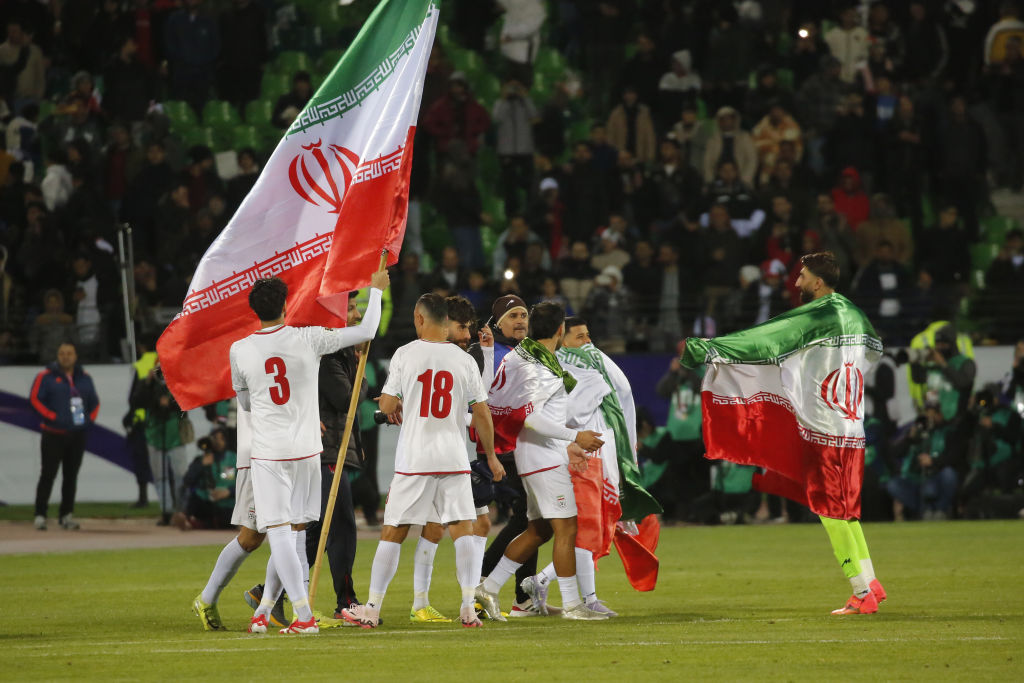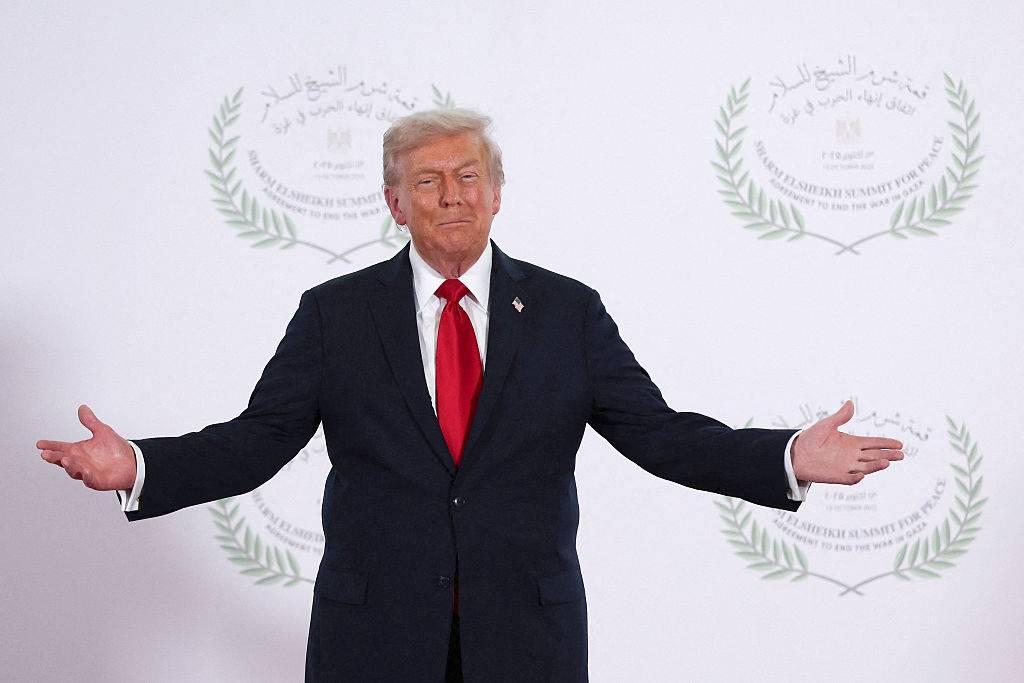Did American failures contribute to Hamas’s war of terror — its unprovoked attack, its total surprise, its horrific butchering of innocent civilians simply because they are Jews?
Yes, but a lesser one. The failures to discover the plans, deter the attack and, having failed at deterrence, to defeat it promptly are Israel’s. The secondary actor here is Iran, not the United States. It was the Islamic regime in Tehran that supplied its terror partner with funds, plans, intelligence and weapons.
Still, the US played a role — a combination of bumbling incompetence and fundamental policy errors that contributed to the onset of the conflict and to Hamas’s success.
Israel’s elaborate network of signals intelligence and human sources failed to uncover a massive plan of attack that involved thousands of terrorists and was months in the making. How could they have missed it? That’s a question its leaders must answer after the war is over. They must also ask why their deployment of military resources near Gaza was insufficient to deter the attack and, failing that, inadequate to protect civilian lives across southern Israel or defeat the rampaging invaders.
But America’s agencies failed, too. They were never expected to unmask internal operations in Gaza, but the CIA and other US intelligence agencies should have discovered what Iran was up to. After all, that regime ranks as one of America’s four enemy states, along with China, Russia and North Korea. Those should be a primary focus of US intelligence efforts — and this was Iran’s biggest foreign policy adventure in years.
Will anyone in the US government be held responsible? You’re kidding. This is The Government. No one is ever held responsible for failures, no matter how grotesque. If the first rule of Fight Club is, “we don’t talk about Fight Club,” the first rule of the Inside the Beltway Club is, “we don’t talk about our mistakes. We protect each other.”
Bad as the intelligence failures were, they were not Washington’s most important blunders. That shameful trophy goes to the Biden administration’s wrongheaded policy in Middle East. Its policy can be summarized in a single word: “appeasement.” The Obama administration pursued the same policy — and many of the same people are in charge now.
Appeasement is not always wrong. When it works, it finds specific areas where reasonable concessions can relieve tensions and produce peaceful cooperation. When it fails, it not only gives an adversary more resources; it signals weakness and a willingness to make even bigger concessions, if pressed. That is how Tehran has read our policy under Biden and Obama. That won’t change unless our policy does.
In both administrations, the basic mistake was a soft, accommodating policy toward Iran and its terrorist proxies, grounded in the belief that Iran could be coaxed into joining “an integrated Middle East,” as the Biden team called it.
That policy can be contrasted with one you never hear mentioned by the Biden team, the “Abraham Accords.” That agreement between Israel and several Persian Gulf states, with quiet support from the Saudis, sought to balance Iran and contain its goal of regional hegemony. The US had already made clear that it would not play a major military role in that effort. (It did nothing, under Trump, when Iran bombed a Saudi oil facility.) The military responsibility for dealing with Iran was left entirely to local states. With the US unwilling to play a military role, Arab states looked to the strongest military power in the region, Israel, which shared their fears.
The Biden administration jettisoned that approach. Instead of trying to sanction and contain Iran, it tried to bring the Islamists in Tehran into an “integrated Middle East.” That was always a utopian goal; we now know it has failed catastrophically. Indeed, one of Iran’s principal goals in sponsoring Hamas’s invasion was to block cooperation between Israel and Arab states across the region.
Israel’s land invasion of Gaza in response to the Hamas attack will put closer ties with Arab-Muslim states beyond reach, at least for a while. Jerusalem’s immediate goal is to root out Hamas. This will be bloody and lead to more loss of innocent lives. The goal of Western powers should be to try and lessen those losses and prevent the war’s spread to Lebanon and direct fighting with Iran.
In assessing Biden’s policy failures, it is crucial to recognize that he made it easy for Iran to sell oil abroad and gave Iran and Hamas financial resources that had previously been blocked by sanction. Those were not glitches in US policy. They were US policy. Biden rescued Iran’s central bank from the near-exhaustion of its foreign-currency reserves and drove America’s regional partners to seek closer ties with China. America’s green energy policy also enriched Iran, though inadvertently, as it drove up oil prices.
If Biden’s dreams had been correct, Iran’s new prosperity would have led to better regional relations. Exactly the opposite happened. The regime in Tehran used its wealth to expand its regional dominance, fund its terrorist proxies and threaten Western partners in the region.
Now that we can see the results of that policy, it must be torn out, root and branch.
Don’t expect the Biden administration to acknowledge its errors, any more than it did after the catastrophic withdrawal from Afghanistan. Like all politicians, they will duck and cover. But they should be covered with shame. And held responsible for the damage they wrought.
This article was originally published in The Spectator’s November 2023 World edition.


























Leave a Reply